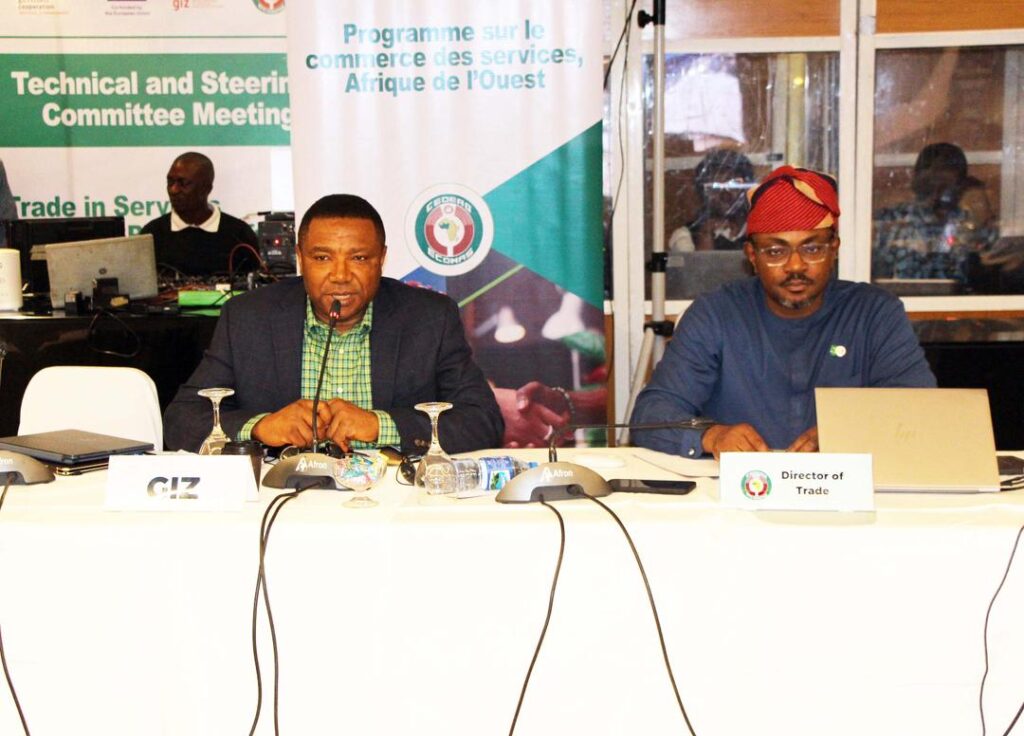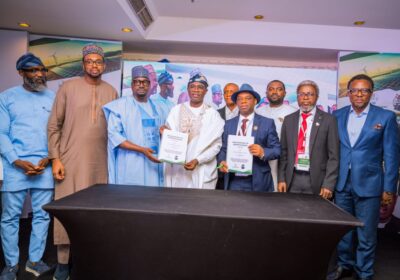ECOWAS HOLD PIONEERING STEERING COMMITTEE MEETING TO DRIVE TRADE IN SERVICES AGENDA IN WEST AFRICA.
By Raymond Enoch
The Economic Community of West African States (ECOWAS) has taken a major step towards deepening regional integration with the convening of the inaugural Steering Committee Meeting of the Trade in Services Programme (TiSP), held in Abuja, Nigeria, on 27 November 2025.

Organised by the ECOWAS Commission through its Trade Directorate, and in partnership with key international stakeholders, the maiden Steering Committee session signals a renewed commitment to harnessing the power of services trade as an engine for growth, jobs, and competitiveness across West Africa.
The TiSP is a flagship initiative designed to boost regional and continental trade through targeted policy reforms, institutional capacity building, and direct support to the private sector. Its core objective is to promote the liberalisation and harmonisation of priority service sectors—such as finance, transport, telecommunications, professional services, tourism, and digital services—thereby creating a more predictable, transparent, and integrated regional market.
At the Abuja meeting, participants reviewed the strategic direction, governance framework and priority actions of the Programme, with a clear focus on ensuring that its implementation directly supports ECOWAS Member States in meeting their commitments under the African Continental Free Trade Area (AfCFTA). By aligning national and regional services policies with AfCFTA objectives, the Steering Committee aims to position West Africa as a competitive hub for services both within the continent and globally.
Officials and technical experts underscored that services now account for a substantial share of GDP and employment in ECOWAS countries, yet remain underexploited in intra-regional trade. The TiSP Steering Committee is therefore tasked with guiding reforms that will remove regulatory bottlenecks, encourage cross-border investments in services, and improve the business environment for service providers, particularly small and medium-sized enterprises.
The meeting also reinforced the importance of strong coordination between the ECOWAS Commission, Member States, development partners and the private sector. Stakeholders stressed that effective implementation of the Programme would require sustained political will, robust institutions, and inclusive stakeholder engagement to ensure that the benefits of services trade reach women, youth, and vulnerable groups across the region.
By launching the first Steering Committee Meeting, ECOWAS has sent a clear signal that trade in services is no longer a peripheral issue but a central pillar of its regional integration and economic transformation agenda. The outcomes of the Abuja session are expected to shape a concrete roadmap for accelerating services reforms and enhancing West Africa’s readiness to fully participate in the AfCFTA’s emerging single African market.








